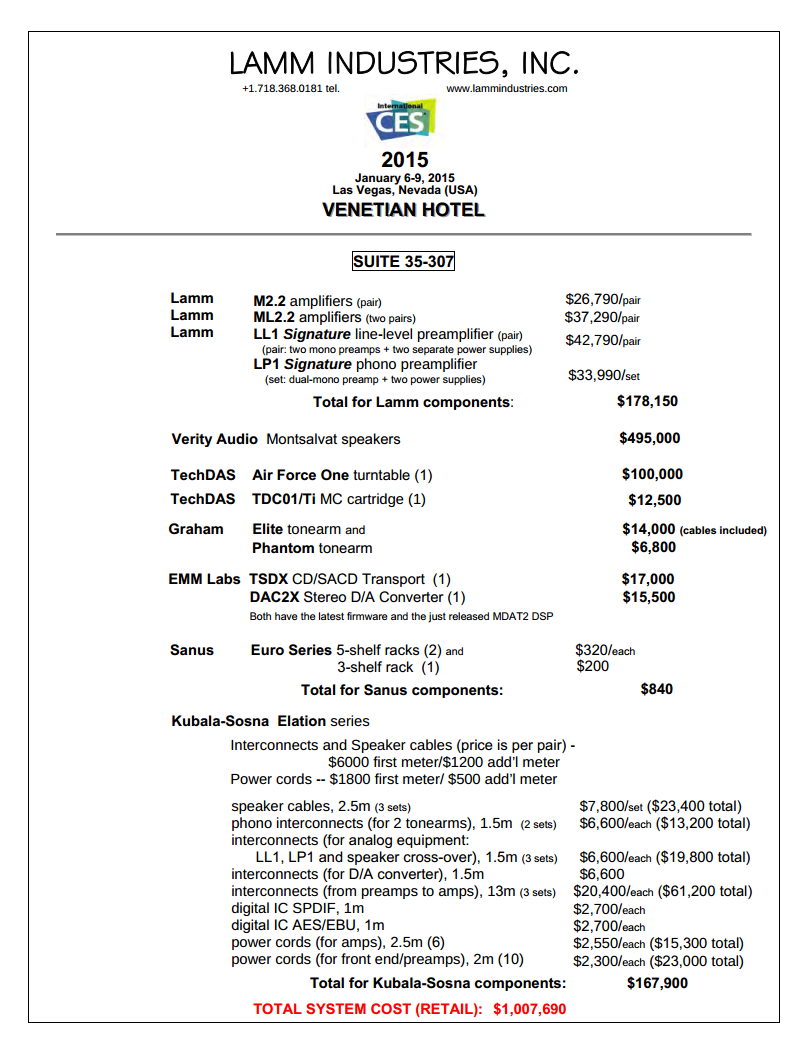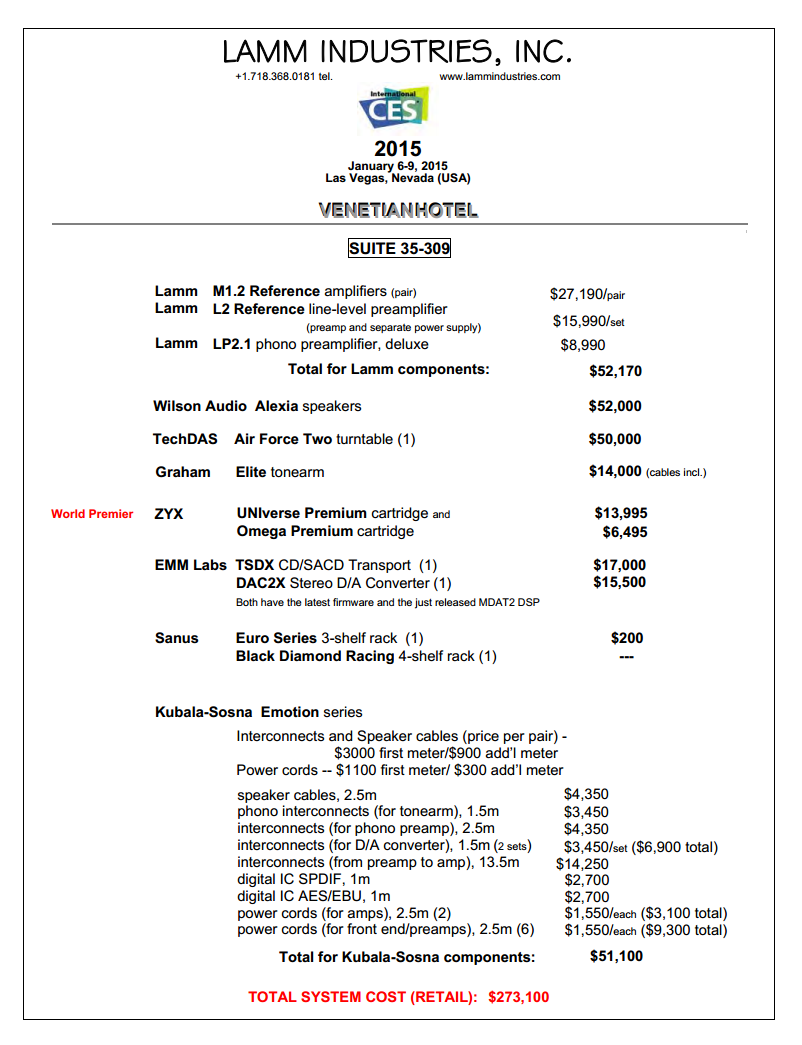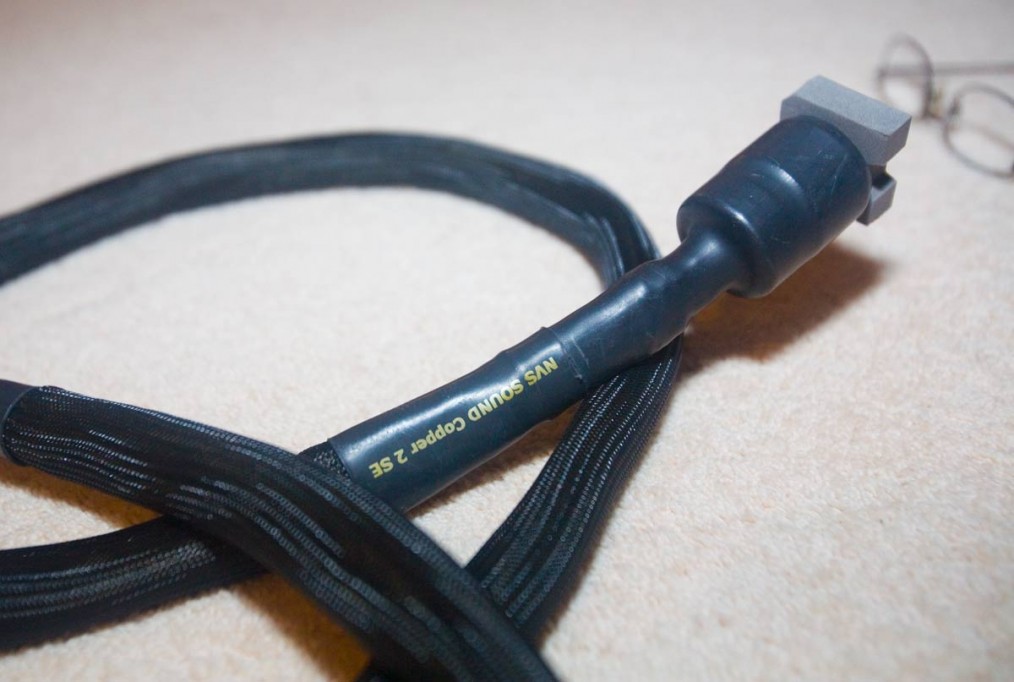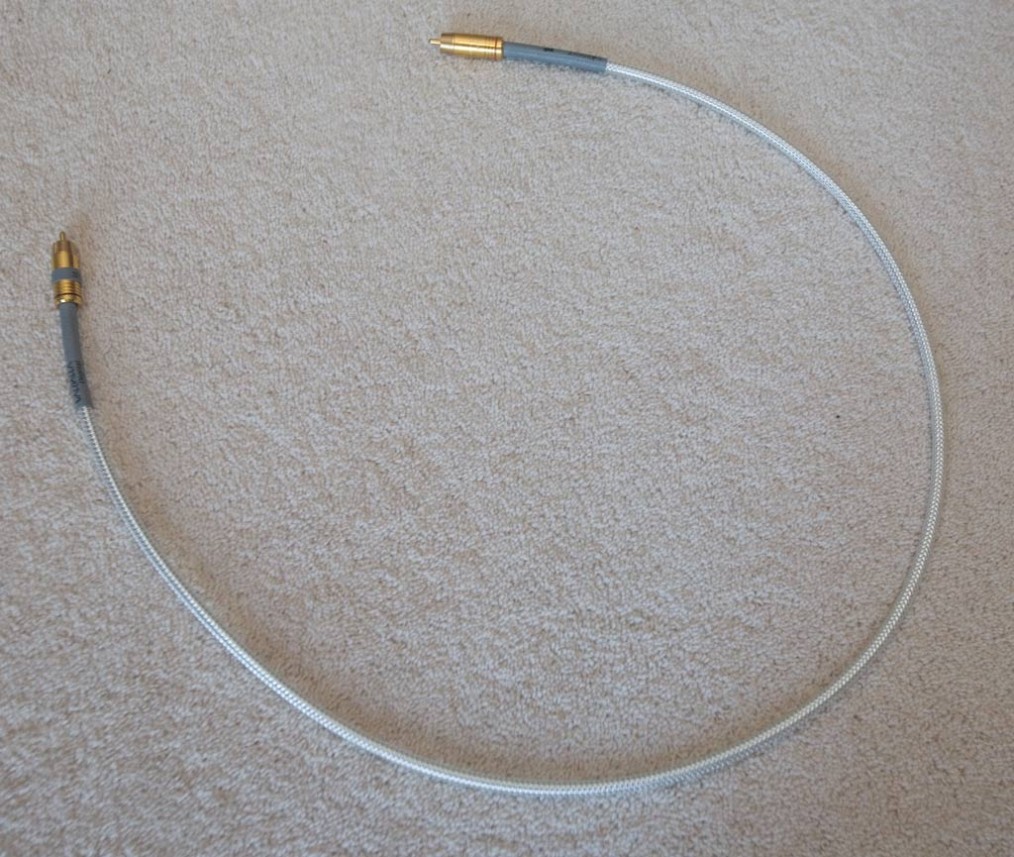We held an NVS Sound Power Cable shootout here between 3 NVS Sound power cords recently.
It is so much fun to hear the differences as we moved up and around the product line. We threw in a couple of other brands of power cords as well, just for fun 😉
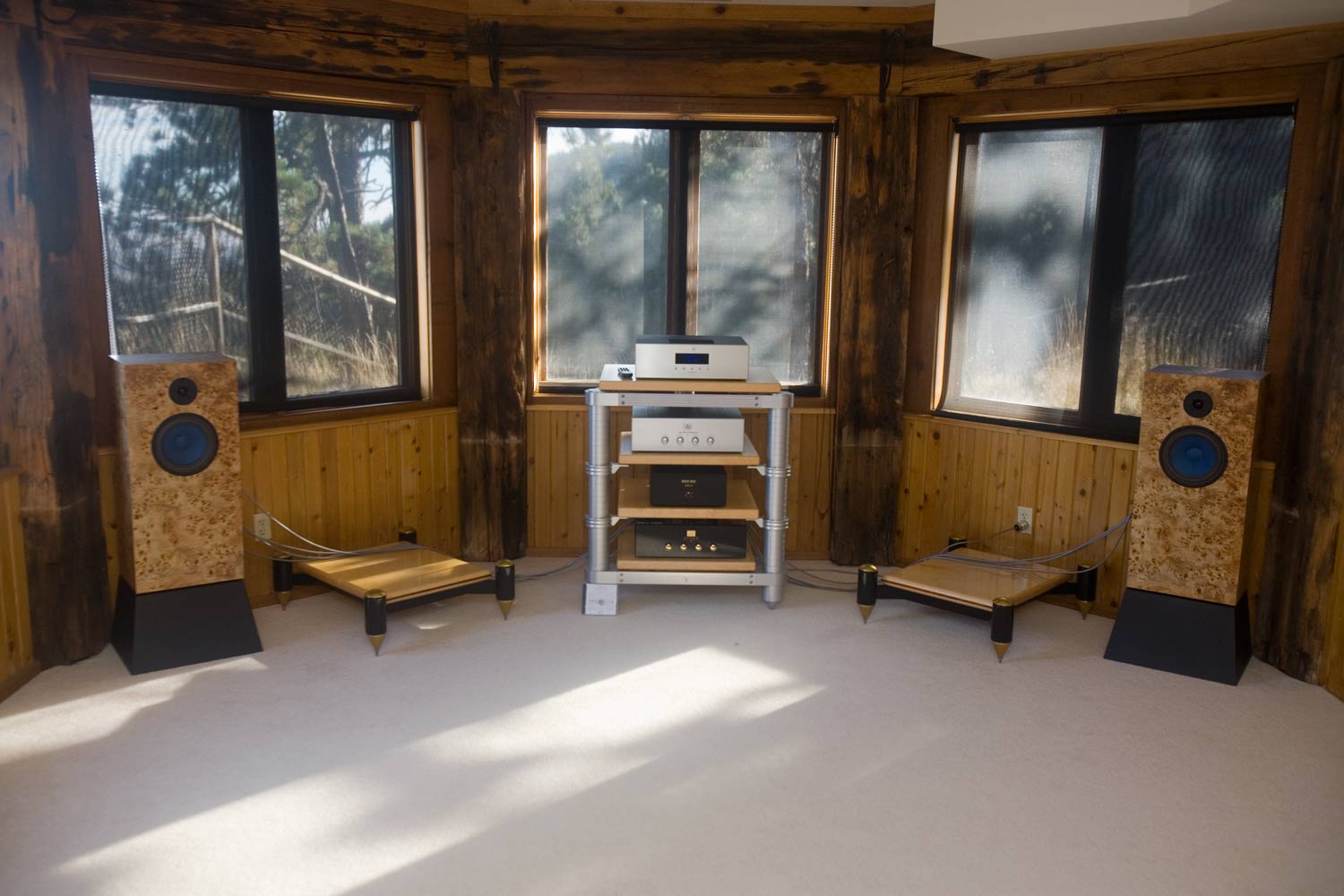
The system we ran the shootout on was an 100% Audio Note system: Soro Phono integrated amplifier [we love the Soro!], AN/E Spe HE speakers, a combination of AN Lexus and LX speaker cables, and CDT-5 transport and an old DAC 4. We put the power cords, one by one, on the Soro integrated.
We started with an Audio Note power cord terminated with plugs that are perhaps not the best fit for this power cord. What it did well was that it held together during crescendos [the Crescendo problem]. One of the things it did not do as well at was a little bunching of the soundstage into left, right and center clumps [the LRC problem].
The Crescendo Problem
Something we are going to come back to over and over again here is a problem during playback when the music gets loud for a moment [in the old days of recording onto cassette tape, this is when the needle would swing into the red for a fraction of a second]. This system is not naturally a hard-sounding or bright-sounding system. But it will be true to both the music being played on it and the upstream components, including cables and power cords.
During crescendos, a music system can become very unpleasant to listen to, and cause our ears to ‘shut down’ to block out the unpleasantness. Even nice audiophile music has crescendos; like when a female vocalist belts out a note, for example. The sound can become hard [there is insufficient resolution for the ear to distinguish individual parts of the notes – so it sounds as one big ‘hammer’ of a sound], or the sound can fall apart all together and become harsh and bright [the amp, in this case, is starved for power].
The LRC Problem
Many of us are familiar with the music sounding like it is coming directly from the speakers. That the speakers, instead of ‘disappearing’, are in fact, on some notes more than others, quite visible to the ears. This is usually a problem with the speaker setup [assuming you have decent speakers to start with well-integrated drivers] – they are too far apart or have a wide baffle and are pointing directly at the ears.
But this can also happen if the high frequencies, which help our ears place the location of things, are being muffled, blurred or distorted. This problem can be caused by any component and any cable, not just by sub-optimal speaker placement.
Acrolink Power Cord [No photos]
The first power cables we tried were Acrolink power cords which retail for around $500.
These had decent resolution in the highs, the notes were solid. It was also a little compressed sounding, but in that ‘notes more solid’ kind of way which was not unpleasant. There was emotion evident in the music, but also a tiny bit of sibalence. Nice image solidity, but less midrange resolution. There were some Crescendo problems, but less of a LRC problem.
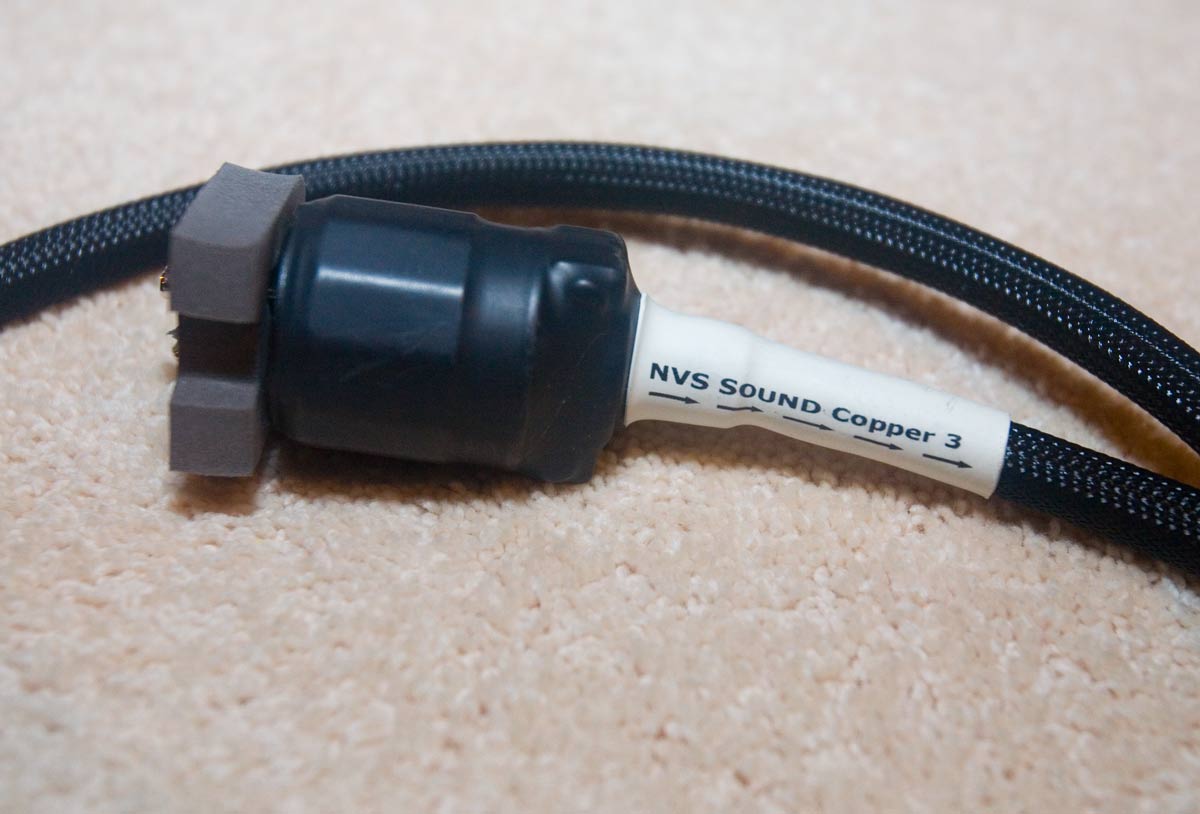
NVS Sound: Copper 3 Power Cord
These are about $1065 for a 4 foot length.
More resolution, more SUSPENSE [I *love* sound that includes suspense – where you find your self waiting in anticipation for each note as you know it must arrive any nanosecond now…!]. More open and relaxed sounding. A definitely quieter background. Much better at handling the Crescendo problem than the Acrolinks. NO LRC problem, whatsoever.
PRaT [rhythm] shows up – and separation much better but not perfect. We now have real, true-to-life imaging; things are placed on the soundstage as they would be in real life.
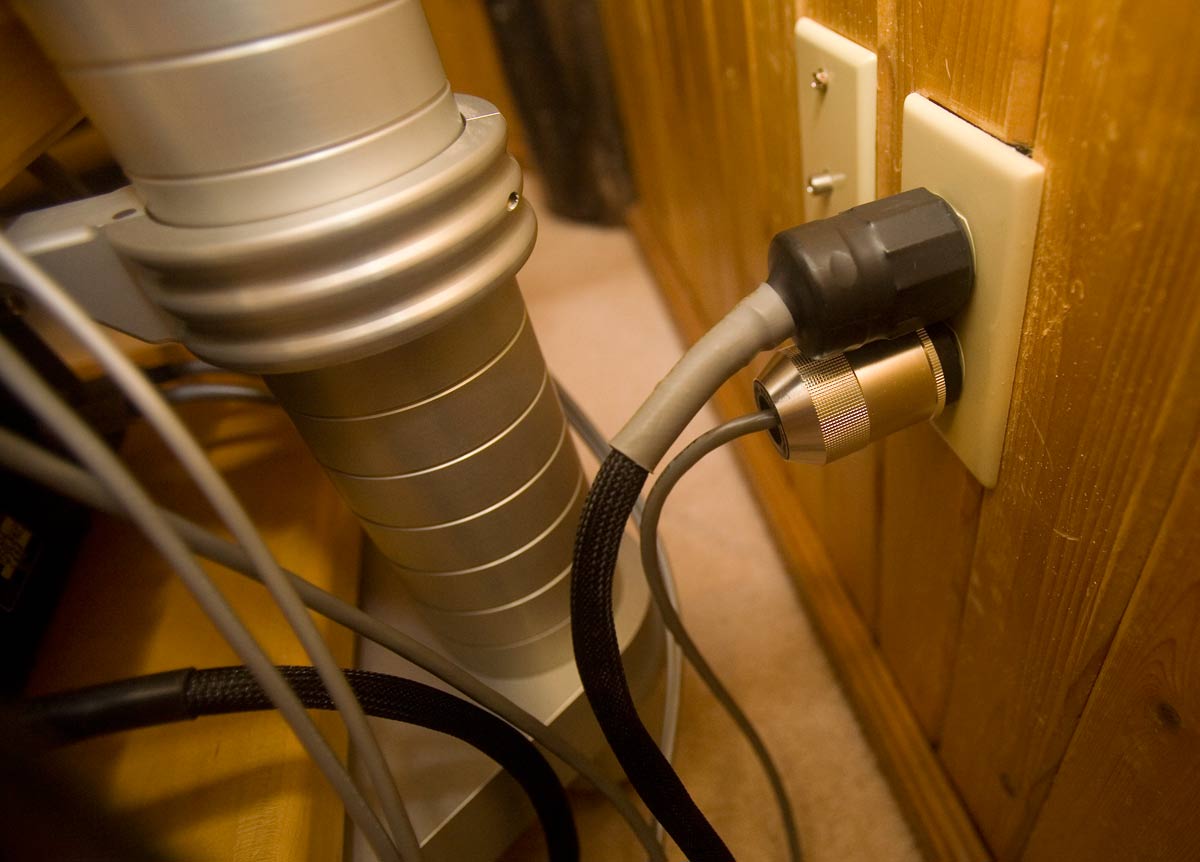
NVS Sound: Copper 1 Power Cord
These are about $2145 for a 4 foot length
There is a LOT more ambient information – a lot more was going on in the music than we had heard before, there were a lot more subtleties. More resolution – specially notable in voices, showing a LOT more emotion. More sense of rhythm, more separation. Really sucks me in to the music. NO LRC and NO Crescendo problems.
NVS Sound: Copper 2 SE Power Cord [Discontinued] [Featured photo]
There were about $1905 for a 4 foot length
This was an interesting cable and we went back and forth to the Copper 1 a few times.
Compared to the Copper 1, the sound here was warmer, more compressed | more solid | more dense sounding. Less resolution and maybe a little more LRC problems.
So why was it interesting? Because the sound was ‘simpler’, more focus on the melody, a little ‘happier’ sounding. More focus on the integration of the sound into a whole [that ‘more compressed, more dense’ sound often has this not unpleasant effect]. There wasn’t as much separation as the Copper 1 and not as much emotion was coming through in the voices.
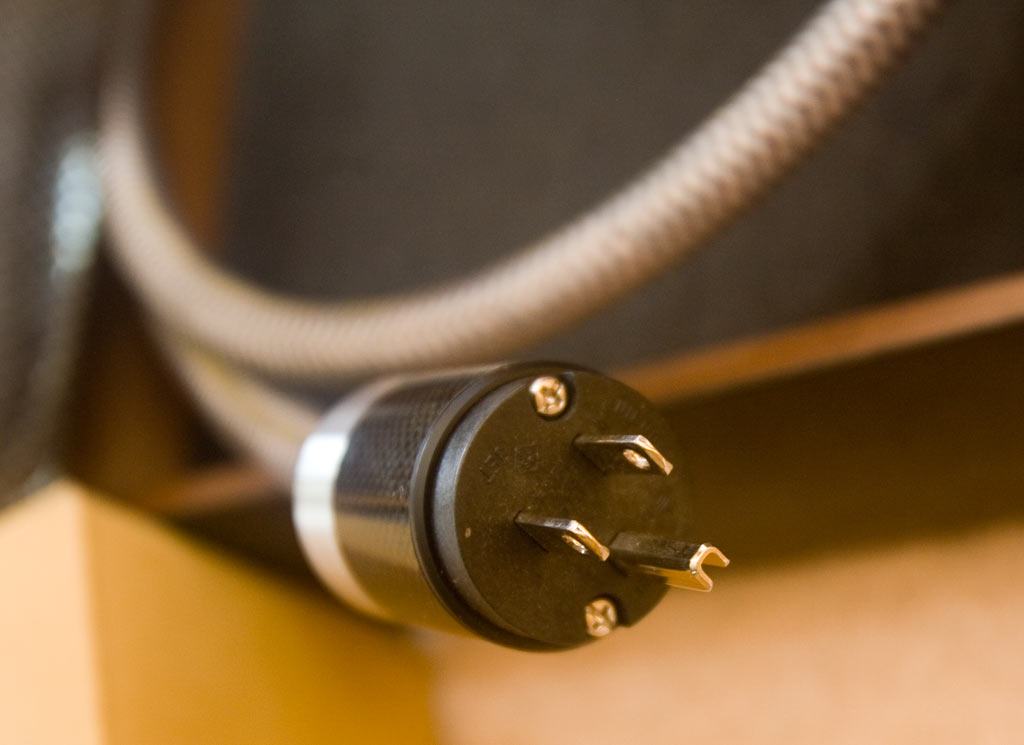
Acrolink Mexcel 7N-PC7100 Power Cord [older version]
This was about $2700 for a 5 foot length
[This was hard to evaluate in some ways because we are SO familiar with its sound. But we went back and forth with the Copper 1 a few times, and I think we got a handle on exactly how they differed].
More emphasis on certain frequencies of the bass, louder voices. It was like the melody was turned up at the expense of the more subtle sounds in the music. Less resolution in the voices, less image solidity, less separation, less linear across the frequency spectrum.
Going back to the Copper 1, the sound was happier, more open, had more resolution – like the sun had come out and bathed the music in sunlight.
These Acrolink PC have been our ‘go to’ cables for several classes of components. They have been sold now, but they have been reliable performers for many years. They are, after many shootouts over the years where we compared them against many contenders, a little midrangey, and little less open -sounding compared to the Elrod PC or Nordost Odin – and this profile is sometimes exactly what is called for in many situations. At heart, they are a ‘fast-sounding’ cable with high resolution, especially in the midrange.
From this perspective the NVS Sound Copper 1 power cables are very high-resolution power cords, and very linear – their response and resolution is very even from bass to treble. They are as open-sounding as the classically open-sounding power cables, but also able to communicate the subtitles of the music – the emotion and delicate background sounds.
Happy-Sounding Cables
Certain cables have what we call here a ‘happy’, upbeat sound. Some have a tired sound. Some have a ‘cold’ sound. I think this has to do in this case, with NVS Sound cables, not so much with warmness [unlike some other cables], but with the ability to communicate the beginning of notes in a way that captures the swell of the note envelope in such a way that the brain can determine not just the emotion of the music, but the mood of the musician who is making it. Experientially, it just comes much closer to capturing the mood of the musician, or, rather, the mood the musician wants to convey, than other cables.
We like this. We like it a lot.
Can’t wait until we can do a shootout of NVS Sound’s top-of-the-line Silver 1, 2, and Inspire power cords. 🙂 For now, the Copper 1 is still in the system, on the Audio Note P1 SE amplifier

